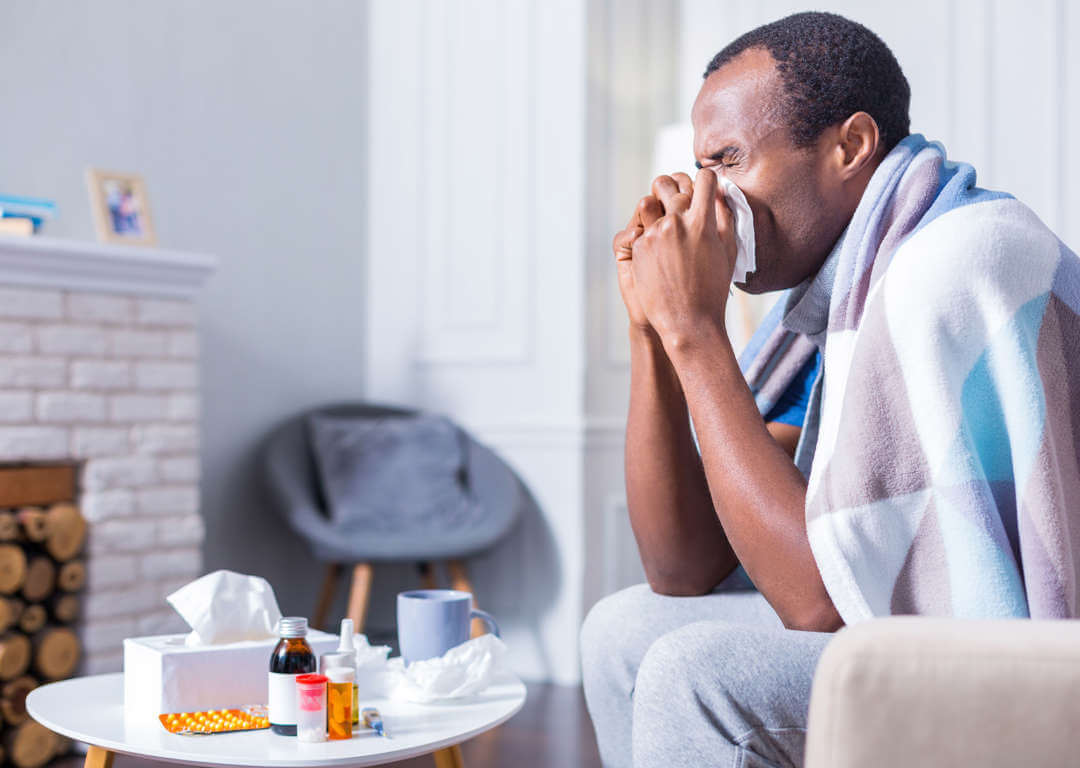
Diabetes & Sick Days: How You can Fight the Flu this Winter
How to manage sick days and fight the flu this winter.
Introduction
As sweaters and snow days come back into season, along with them comes winter’s common coughs and sneezes. What may start out as an innocent sniffle around the office may quickly progress to something more serious–the flu. People with diabetes (type 1, type 2, or gestational), even when well-managed, are at higher risk of developing serious flu complications, which can result in hospitalization and sometimes even death. Flu also can make chronic (long-term) health problems like diabetes worse because these conditions can make the immune system less able to fight off infections. Furthermore, illnesses like flu can make it harder to control your sugar levels. The flu may raise your sugar levels, but sometimes people don’t feel like eating when they are sick and a reduced appetite can cause sugar levels to fall. Make sure to read on for some tips on how to manage sick days with diabetes.
Preventative Measures
When it comes to avoiding the flu, the CDC says the annual flu shot is your number one line of defense in protecting yourself against the virus. The flu vaccination is especially important for people with diabetes because they are at higher risk of developing serious flu complications. You can find an affordable flu vaccine at some grocery stores, local pharmacies, and at your doctor’s office.

Eating foods rich in Vitamin C may also help protect your body during cold and flu season. Tropical fruits such as pineapple, oranges, and kiwi are chock-full of this disease-fighting nutrient. A hearty serving of leafy green veggies won’t hurt, either.
You can also help stop the flu by coughing or sneezing into the crook of your arm, rather than in your hands. If you do become ill, the CDC recommends staying home for at least 24 hours after your fever is gone. Not only does this prevent others from getting sick, it also gives your body some much-needed downtime in order to fight off the disease.
Before Flu Season
- Get your Flu Shot
- Eat food rich in Vitamin C
- Washing hands frequently
- Wearing your mask if feeling ill
Sick Day management
- Continue taking your insulin and diabetes pills as usual when you are sick
- Test your sugar every 4 hours and keep track of the results
- Drink extra calorie-free liquids, and try to eat as you normally would
- Weigh yourself every day. Losing weight without trying is a sign of high sugars
- Check your temperature every morning and evening. A fever may be a sign of infection.
When to Call for Help
Monitoring your blood sugars and taking your medicine as prescribed can help you stay safe during your sick days. Call your doctor or go to the emergency room if:
- You have moderate to high ketones in your urine. There are at home ketone test kits.
- Temperature >101 degrees
- Any changes in mental status, difficulty breathing, or cannot think clearly
- Persistent Diarrhea
- Sugars are lower than 60 or greater than 300, despite eating and taking medications as prescribed
Take care of yourself this flu season by taking preventative measures. If you do get sick, make sure to call your doctor, stay hydrated, and monitor your symptoms.
Stay Healthy!
Disclaimer: Any information provided is not intended as medical advice. Iowa Diabetes is not responsible for any information from third parties.





